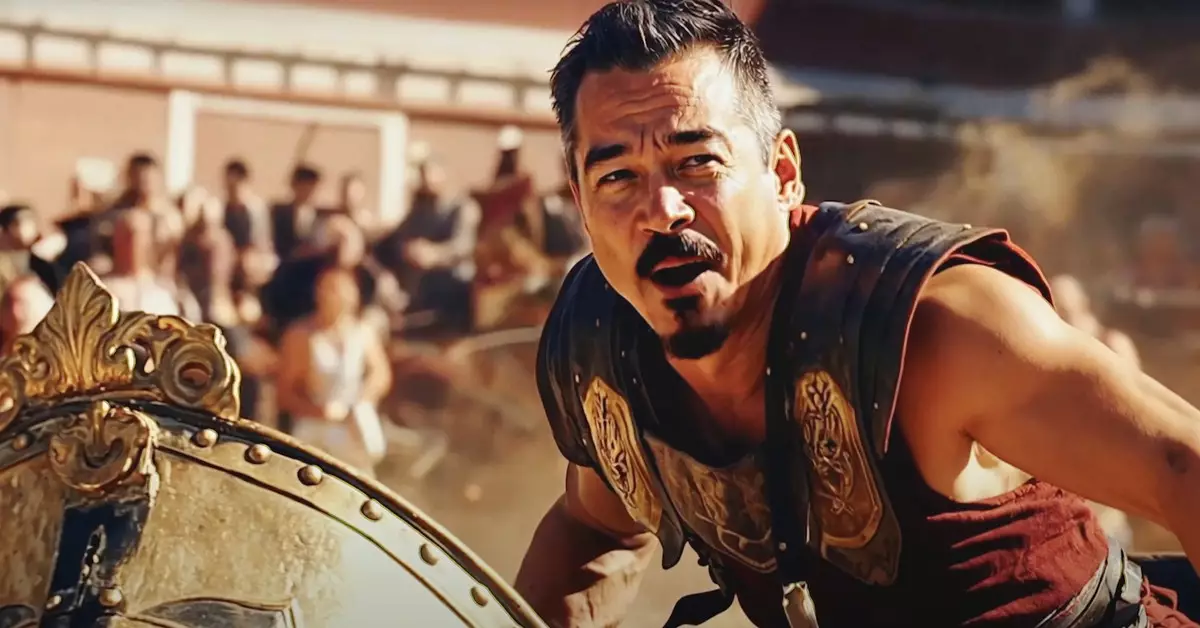The rapid advancement in artificial intelligence has promisingly enriched various sectors, from healthcare to creative arts. However, its application in the realm of animation, as demonstrated by TCL’s recent foray into this space, raises significant questions about the boundaries of creativity and technology. Following the release of the AI-animated short film *Next Stop Paris*, which drew criticism for its lifeless characters and awkward animation, TCL introduced a series of five additional AI-generated shorts on its TCLtv Plus platform. While the debut may have sparked excitement about AI’s future in film, the resulting works underline that we are still in the rudimentary stages of this technology.
The trailer for *Next Stop Paris* did little more than offer a glimpse into what one can expect from these ventures—a mixture of intrigue marred by incompetence. Despite the flaws, TCL’s continued investment in AI films indicates a willingness to push boundaries, but it is evident that these projects often miss their mark.
TCL’s new five shorts—though seemingly improved in technical aspects compared to their predecessor—remain a far cry from polished cinematic experiences. The promise of harnessing AI’s capabilities to produce captivating narratives is often overshadowed by jarring animation and cliched stories, leaving viewers questioning the future of this medium.
Captivating Concepts Sullied by Execution
One short film echoes the themes found in Ray Bradbury’s poignant narrative *All Summer in a Day*. It showcases a girl yearning to glimpse the elusive sun on her planet, where sunlight graces its inhabitants just once every seven years. While the premise is intriguing, the execution stumbles — a mix of odd animation choices and disjointed storytelling force audiences to endure a convoluted journey marked by poorly articulated scenes and lackluster voice performances. This ultimately leads to a narrative that becomes difficult to follow, moving away from its Source material’s emotional weight.
The same unease permeates the second offering, *Project Nexus*, which attempts to deliver a superhero origin tale riddled with clichés. Here, four teenagers discover powers after a radioactive rock incident, but the viewer quickly realizes that what was likely intended as an engaging 5-minute adventure feels more like the trailer for a project that never truly materializes. Despite the narrative’s potential, the lack of character depth and uninspired animation leave it feeling more tedious than thrilling.
The Disconnect in Docufiction
Another film, a docufiction that dramatizes Dr. Warren Brown’s harrowing experience of losing a leg in a mountain avalanche, raises profound concerns about the authenticity of the storytelling. The film aims to blend live-action with AI recreations, but instead alienates viewers with bizarre AI-generated sequences that detract from the gravity of Brown’s experience. The result is a jarring mix of “real” human emotion juxtaposed against absurd visual artifacts that threaten to eclipse any tender moments the short might have offered. Such a narrative not only risks trivializing personal trauma but also distracts from the artistic potential that AI could aim to uphold.
A Comedic Attempt That Falls Flat
*The Audition*, TCL’s endeavor to explore the comedic realm, reveals a perplexing reality: AI cannot replace the nuances of human humor. The story revolves around an actor contorting himself to meet the surreal demands of a casting director — techniques that had the potential to be hilarious dissolve into an uncomfortable and unfunny portrayal. The use of deepfakes to interject iconic scenes into the narrative feels more like a gimmick than an innovative approach to storytelling.
A Convoluted Metamorphosis
Lastly, the short showcasing a woman’s transformation into a slug through a nightmare of arthritic despair is perhaps the most disconcerting offering. The film’s disturbing imagery might elicit a visceral response from audiences, yet it raises the question: Where is the line between artistic expression and sheer absurdity? Such narratives seem to revel in their grotesque nature without providing sufficient context or purpose. The metamorphosis from human to slug could symbolize pain and isolation, but instead leaves viewers bewildered and uneasy.
Ultimately, the latest offerings from TCL’s AI-generated lineup serve as a cautionary tale rather than the heralding of a revolutionary cinematic future. While experimentation is a natural part of any artistic endeavor, the current limitations of AI technology are glaringly evident. Rather than focusing solely on the novelty of new tools, creators must grapple with the foundational aspects of storytelling—character depth, emotional resonance, and coherent narrative threads. The challenge lies in marrying AI’s potential with the indelible human touch that storytelling demands. Until then, TCL and others venturing into this exciting yet treacherous territory must tread carefully, lest they continue to produce content that is more perplexing than profound.


Leave a Reply